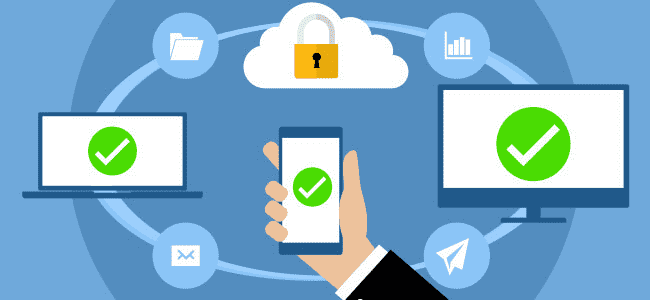Did you know? Cyberattacks happen more to small to midsize businesses (SMBs) than large corporations. This is because cybercriminals know that SMBs often don’t have strong network security as larger companies do.
If you’re an SMB, know that there are several ways to strengthen your defenses against ever-evolving digital attacks. While you could count on traditional endpoint security solutions, cloud endpoints security could be a better option.
This is particularly true given the changes to the market, such as the need for 24/7 accessibility, rising IT costs, and greater competition. These factors have led more businesses and organizations to embrace cloud computing, so why shouldn’t you?
WHAT IS CLOUD ENDPOINTS SECURITY?
Just like traditional solutions, cloud endpoints security is designed to protect an organization’s endpoint devices and fortify a network’s defenses. The only difference is that instead of getting access to in-house servers, cloud endpoint security is hosted through the internet. This approach in deployment provides several benefits, which are especially useful to SMBs like you.

Cloud Endpoints Security Best Practices
To successfully deploy reliable cloud endpoints security, there are best practices an organization must follow through. This includes:
- Centralize security strategy
- Secure user endpoints
- Network segmentation
- Prevent cloud phishing by fortifying credentials
Now that you know the basics of cloud endpoints security, let’s take a closer look at the reasons why it’s important.
Cloud Endpoints Security: Minimized in-house resources
This is something you could benefit from in any cloud-based solution. Instead of being entirely responsible for hosting and maintaining your software when deploying on-premise solutions, you no longer have to deal with cloud endpoints security as its products are hosted on the vendor’s servers. This means that you don’t have to deal with hiring extra staff, buying space, and paying a higher electricity bill.
Cloud Endpoints Security: Minimized upfront resources and commitments
A lot of on-premise solutions require the full upfront amount of the software. This can be easily met if you’re a large corporation but for small and medium-sized businesses, shelling out such a large investment is extremely risky—if not impossible.
Cloud-based solutions, on the other hand, are typically available for a small monthly fee. This is why this approach is more accessible and beneficial to smaller businesses.
Moreover, cloud systems are also easy and convenient to set up. You can have your products installed and running within just a few minutes. This means that business downtime can be reduced.
And if you’re hesitant to use cloud-based solutions, contracts are typically around one to three years, which means you have the liberty to forego and move on to the next solution if you don’t see cloud endpoints security being the right choice for your company.
-
Continuous monitoring
A good cloud endpoints security solution allows for the continuous monitoring of networks and analyzing of cyberthreat data. This is key if you’re looking to build a stronger product for your customers.
Using the data acquired, your vendor will have a better understanding of similar threats that target multiple networks. This will further allow them to build their database and enhance their detection heuristics, which helps in catching zero-day threats.
-
Flexible options
If you think cloud and traditional products are two mutually exclusive options, then you’re in for a huge surprise. In reality, there are actually a lot of options in between them.
There are security vendors today that offer specialized solutions utilizing the cloud to deliver maximum security. This is possible without the need for any data transmission out of an organization’s network.
-
Automatic backups
A traditional endpoint security system typically relies on how often you backup your data for it to keep track of which users and devices have accessed privileged levels of data. This somehow makes it easier for attackers to tamper with log history.
Cloud endpoints security, on the contrary, stores your logs in the cloud, which means your data is safe even if your hardware malfunctions.
-
Remote monitoring
Cloud endpoint security eliminates the need for you to keep hiring personnel to manage your security systems in different locations. Instead, it enables your system administrator to run and keep track of company devices remotely. This enables you to maximize your IT staff, especially if you have several offices.
Choosing the right cloud endpoints security solution for your business calls for sufficient time and thoughtful consideration. Remember that this can help you fortify your network and reduce expenses in the long run. Make your decisions wisely.
And if you’re on the hunt for a reliable cloud-based security solution, Xcitium may be what you’re looking for. In addition to traditional security solutions, we also offer cloud-based products. Browse through our list of offerings and see how we can help.
